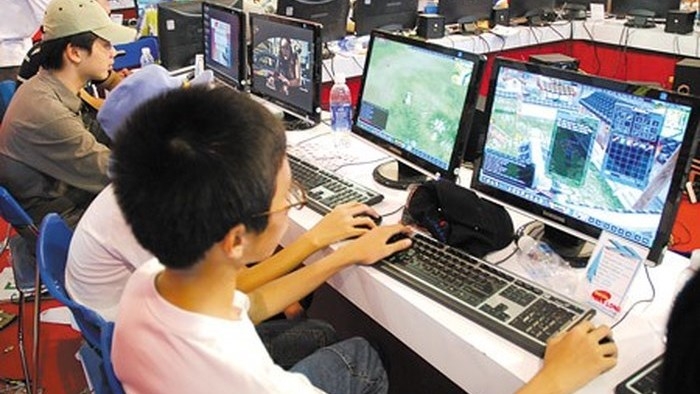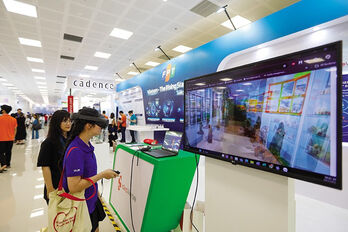
A UNICEF opinion poll in 2016 found that 72% of Vietnamese youths aged 15-24 are connected to the internet (Photo: giadinh.net.vn)
The United Nations Children’s Fund (UNICEF)’s annual report on the “State of the World’s Children 2017: Children in a Digital World” pointed out that the internet can increase children’s vulnerability to danger, including the misuse of their private information, access to harmful content, and cyber bullying.
Social experts stated that if it is utilised in a proper way, digital technology can be a life changing tool for children, particularly children with disabilities, ethnic minority kids, and those living in disadvantaged areas.
However, the easy access to digital technology has limited the supervision over children, which is also a potentially dangerous situation for children.
An international opinion poll of more than 10,000 18-year-olds from 25 countries worldwide, carried out by UNICEF in 2016, found that 72% of Vietnamese youths aged 15-24 are connected to the internet, with 74% believing that young people are in danger of online sexual abuse.
Vietnam has exerted every effort to address child violence and child abuse, as well as ensuring child protection in the digital environment by formulating and implementing legal documents and policies. For example, Decree No 56/2017/ ND-CP stipulates the detailed rights and measures to support and safeguard children in the digital world.
However, specific directions for violations related to the issue have yet to be put in place. Parents have also not instructed or controlled the use of smart phones, tablet computers and the internet among their children, despite the fact that more and more children are becoming addicted to games and social networks.
To keep children safe in digital world, UNICEF recommends that it is necessary to equip children with the necessary skills to access a safe internet environment and high-quality online resources, protecting them from online threats such as abuse, human trafficking, and online bullying, while safeguarding their privacy and identities.
In addition, parents play an important role in screening, preventing and protecting children in cyber space, as well as in helping them to use digital technology in an astute and effective way.
Experts stressed the need to educate children on e-safety: no talking to strangers on the internet, no providing others with personal information, addresses, phone numbers, relationships or personal activities.
Parents are recommended to enable ‘Kid Mode’ on their devices which can connect to the internet, as well as to not publicise online information on their children, family secrets, addresses and phone numbers.
It is also necessary for service suppliers to establish standards on child protection, such as adults-only age verification, and timely interventions for virtual child pornography cases.
At the highest level, the State needs to promulgate more comprehensive guidelines on the protection of children's privacy, which should not just be limited to the digital environment./.
NDO
 Vietnamese enterprises in race to build AI market
Vietnamese enterprises in race to build AI market



